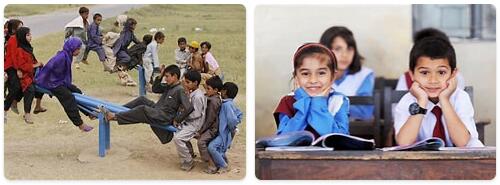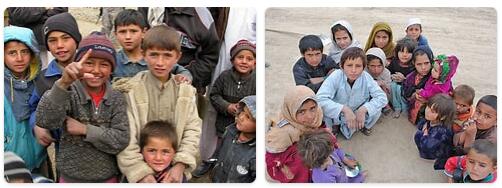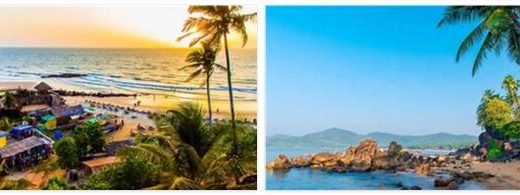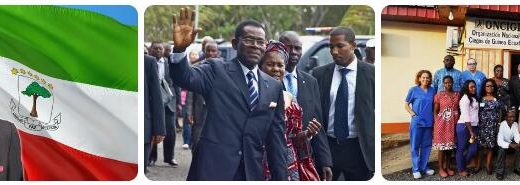Pakistan 2014
Yearbook 2014
Pakistan. The year was marked by violent assaults and failed peace negotiations. Pakistan population in 2020 is estimated at 220,892,351. Nearly 800,000 people were forced to flee in the government’s major offensive in North Waziristan. The fall was dominated by severe flooding and government-critical demonstrations. Malala Yousafzai received the Nobel Peace Prize.

The year began violently with more than 110 dead in January in assaults from both sides between the government and the Taliban umbrella organization TTP. The trial of the former treason accused and President Pervez Musharraf began. A 15-year-old boy was hailed after preventing a suicide bomber from entering a school in Hangu.
In February, Prime Minister Nawaz Sharif and the government initiated peace talks with TTP. The US stopped the drone attacks. Negotiations were suspended when a Taliban group announced that they had killed 23 semi-military soldiers who were kidnapped in June 2010. The following day, Pakistan’s air force launched bombings against Taliban strongholds in North and South Waziristan.
In March, TTP announced a one-month ceasefire, and the government responded by stopping air strikes against the clan areas. It was hoped that the peace talks would start again. Just a day later, a well-organized attack was carried out against a court building in Islamabad. Eleven people were killed and nearly 30 injured in what was described as one of the deadliest attacks in Islamabad in several years. Suspicions were directed at sub-groups of the TTP who rejected the peace talks. The Ministry of Defense demanded that one of Pakistan’s largest news channels GEO News be shut down. At least 12 people were killed in a bomb attack against a vaccination team in Jamrud.
In June, a split in TTP occurred when the influential clan Mehsud in South and North Waziristan left the organization. The split came some time after TTP elected a disputed leader, Mullah Fazlullah from Swat. The peace talks between TTP and the government finally stalled when TTP took on the blame for a major terrorist attack on Karachi airport. 37 people died in the attack, which TTP claimed to be revenge for Taliban leader Hakimullah Mehsud’s death in a November 2013 drone attack. The Supreme Court of Pakistan set the exit ban on former President and former General Pervez Musharraf. On June 15, the government army launched a major offensive in North Waziristan, which in early July forced between half a million and 800,000 people to flee. The offensive was supported by Pakistani politicians and the media, but was also met with criticism for affecting many civilians. In early July, the Pakistan Army took control of the North Waziristan capital, Miranshah.
According to topb2bwebsites, on Pakistan’s National Day, August 14, government-critical demonstrations were led by opposition leader and PTI leader Imran Khan and Muslim leader and PAT leader Tahirul Qadri. A protest march in Islamabad was followed by a sitting strike with more than 20,000 people. Unrest during demonstrations around. about in the country was reported. The protesters demanded the resignation of Prime Minister Sharif, the holding of new elections and an end to corruption. Prime Minister Sharif tried to dampen tensions by allowing the country’s highest court to investigate allegations of electoral fraud in the 2013 election.
Unusually heavy monsoon rains caused landslides and the worst floods in 50 years. Bilawal Bhutto Zardari, chairman of the PPP (Pakistan People’s Party), declared that he will be running for the 2018 general elections.
In October, the nomination of 17-year-old Malala Yousafzai was announced as the Nobel Peace Prize for her work on girls’ and women’s right to education. The prize is shared with Indian activist Kailash Satyarthi. The appointment sparked mixed reactions in Pakistan. Malala was widely praised and congratulated by Prime Minister Sharif and former President Asif Ali Zardari. But the news didn’t get much room in the Pakistani media and critics talked about the appointment as a conspiracy from the West. Malala became famous when she blogged for the British BBC about her everyday life as a young girl in Swat and became a spokesperson for the girls and women who had their rights restricted by the Taliban movement. In October 2012, she was shot in the head in a murder trial and today lives in the UK. In September, the Pakistani army reportedly arrested ten men suspected of being involved in the attack. The men were identified as members of TTP.
In October, Tahirul Qadri and his party PAT (Pakistan’s People’s Movement) announced that they were ending their two-month long strike in Islamabad. But opposition leader Imran Khan and his PTI (Pakistan’s Justice Movement) said they would continue with their protests until Sharif resigns. In November, Pakistan signed a military cooperation pact with the Russian Federation. The Pakistan Defense Ministry described the pact as a “milestone”.
Another four people who worked on polio vaccinations were killed in Quetta in November. Vaccination campaigns against polio have met with great resistance in recent years and have been accused of being a Western-led conspiracy against Muslims. There are also rumors that the vaccine is causing sterility. In October, 220 children had been infected, the highest figure since 1999.
On December 10, Malala Yousafzai received the Nobel Peace Prize in Oslo.
On December 16, at least 141 people, including 132 students, died in an attack on a school in Peshawar. The Taliban organization TTP took on the deed described as one of the bloodiest attacks in the country in modern times. Prime Minister Sharif announced three days of country grief and convened a meeting with all parliamentary parties. Several leaders around the world condemned the attack, including UN Secretary-General Ban Ki Moon and US President Barack Obama.


